It’s nice to see you back here at the Dostoyevsky-BTS blog, our lovely readers! And if this is your first time visiting, welcome!
As I mentioned last time we will be discussing today Dostoyevsky’s influence on some of the major writers of the Edwardian Era, and I have chosen Virginia Woolf as our subject for today. This is a vast subject that I will humbly review.
Many people consider themselves a fan of Virginia Woolf, but how many are aware of how much she was influenced by Russian literature, specifically the works of Fyodor Dostoyevsky? Though Russian literature has had a great affect on countless writers, Woolf is one of the most famous and prolific of British Edwardian writers to speak directly in the subject of its influence.
In her essay, “The Common Reader: The Russian Point of View” published in 1925, Woolf discusses her views on Russian literature and comments on three of the most renown Russian novelists, Tolstoy, Chekhov and Dostoyevsky.
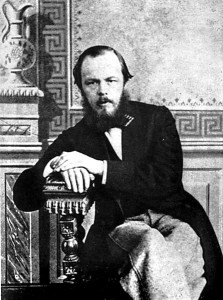 |
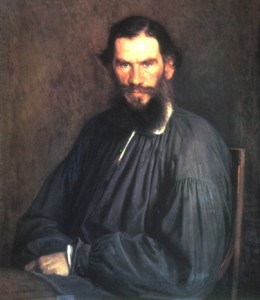 |
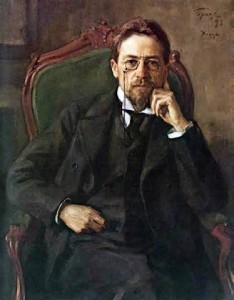 |
She describes Dostoyevsky’s work in her essay The Common Reader, “The novels of Dostoevsky are seething whirlpools, gyrating sandstorms, waterspouts which hiss and boil and suck us in”. This is nothing short of intense and delineates the depth of feeling she had for his writing. Passion extraordinaire! Her love for Russian culture and literature is unmistakable.
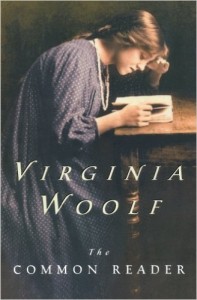 “The Common Reader” reflects upon various aspects of the subject of comparative cultural relations as well as specifically the sort of inherent intangible elusiveness preventing the British from “truly understanding” Russian literature. Separated by multiple barriers, Woolf considers the disparity between the original versions of Russian classics compared to the translations provided, and reservedly laments the subtleties lost through those translations. “Even in a translation we feel that we have been set on a mountain-top and had a telescope put into our hands.”
“The Common Reader” reflects upon various aspects of the subject of comparative cultural relations as well as specifically the sort of inherent intangible elusiveness preventing the British from “truly understanding” Russian literature. Separated by multiple barriers, Woolf considers the disparity between the original versions of Russian classics compared to the translations provided, and reservedly laments the subtleties lost through those translations. “Even in a translation we feel that we have been set on a mountain-top and had a telescope put into our hands.”
How much of a sense of the original work do we receive when we read a work of Russian literature? She asks at the beginning, how can the British be expected to understand a culture so different as is nearly impossible to fathom? “Doubtful as we frequently are whether either the French or the Americans, who have so much in common with us, can yet understand English literature, we must admit graver doubts whether, for all their enthusiasm, the English can understand Russian literature.” We rely heavily and trust implicitly the translator to communicate as closely as possible the original intent of every line. Woolf states, “Our estimate of their qualities has been formed by critics who have never read a word of Russian, or seen Russia, or even heard the language spoken by natives; who have had to depend, blindly and implicitly, upon the work of translators.” Cultural and language barriers make sure that gap can never be fully crossed. Further it is not only cultural difference that presents a problem, Woolf then states “Not only have we all this to separate us from Russian literature, but a much more serious barrier — the difference of language.”
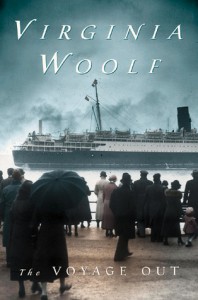 |
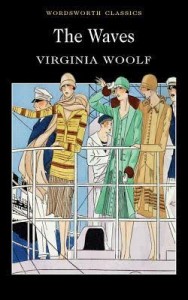 |
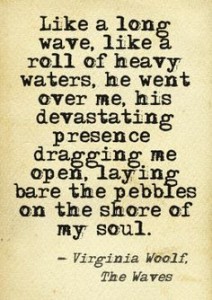 |
This sense of a distinct social difference is utilized in her own work, “This sense that people inhabit different epistemological universes is a major theme running throughout Woolf’s novels. In The Voyage Out, Hewet declares, “No two people are in the least alike” (107); in The Waves, Percival proclaims, “But we were all different. The wax – the virginal wax that coats the spine melted in different patches for each of us (178)”(Domestico). It is fundamental that every culture is distinct from every other, that differences between us present an infinite persuasion to learn about that persistent, unattainable “other”.
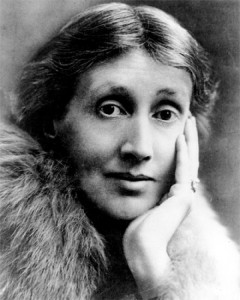 |
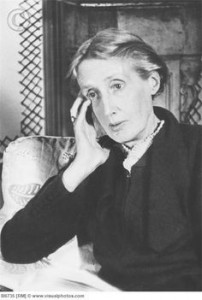 |
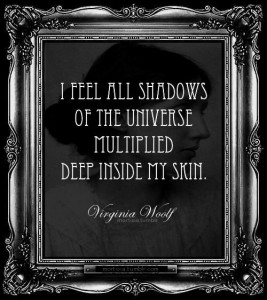 |
What does it mean to fully understand and grasp the reality of another? The desire to completely understand the realities of others is possibly futile. Even if we believe we have achieved understanding what have we to confirm this supposition? Knowing this, should we not simply enjoy those differences which provide such fascination rather than regret them? Woolf herself poses the question at the beginning of the text: “Debate might protract itself indefinitely as to what we mean by “understand” Everything we attempt to understand in life will be removed from the original truth of things by our own experience and perspective. Even if we believe that we understand another, do we really? The infinitely transient state of being is almost impossible to fully comprehend.
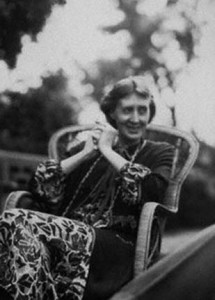 The question of whether it possible to fully understand even someone from our own culture much less any other invites eternal conjecture. It makes perfect sense however, Woolf’s desire to have as accurate an understanding of the writer’s initial message as possible. Having as good an understanding as possible of the world in which the writer lived and the cultural nuances of his or her environment certainly aid in this endeavor. However, to fully comprehend the intended meaning of that will perhaps forever be out of our grasp.
The question of whether it possible to fully understand even someone from our own culture much less any other invites eternal conjecture. It makes perfect sense however, Woolf’s desire to have as accurate an understanding of the writer’s initial message as possible. Having as good an understanding as possible of the world in which the writer lived and the cultural nuances of his or her environment certainly aid in this endeavor. However, to fully comprehend the intended meaning of that will perhaps forever be out of our grasp.
I propose finally that it is in part this cultural, and linguistic distance that is a salient to the allure of reading work in translation. There is an adventure, a challenge and a mystery involved in the process of reading these works, and without this cultural divide perhaps the intrigue would not be quite so intoxicating. This mystery is part of why I myself as an insatiable reader adore work in translation, which provides a literary adventure into the distant unknown.
But next time you pick up a copy of a Woolf novel, you might notice as you wander through its beauty, the incredible influences of Russian literature. Enjoy and we’ll see you next time!
For more information about the director Vitaly Sumin and his incredible visionary adaptations of Dostoyevsky’s masterpieces come visit us at the Dostoyevsky-BTS website: http://www.dostoevsky-bts.com. Also be sure to visit us at home and sign up for our free newsletter at Dostoyevsky Reimagined: The Making of Notes from the New World. You’ll gain exclusive access to our members-only content and the incentives.
Follow us through our social media on Twitter, Facebook, Google+, Pinterest, Tumblr, and Instagram.
 We hope to see you back here soon!
We hope to see you back here soon!
References:
Woolf, Virginia. “The Common Reader.” 1925
Domestico, Anthony . “The Russian Point of View” Web blog post. The Modernism Lab at Yale University.
Available at: https://modernism.research.yale.edu/wiki/index.php/%22The_Russian_Point_of_View%22

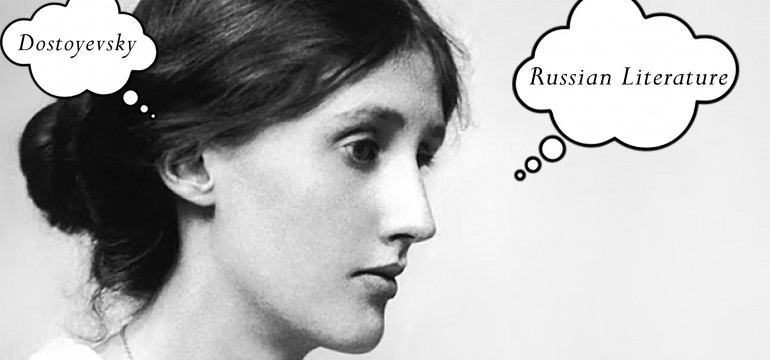
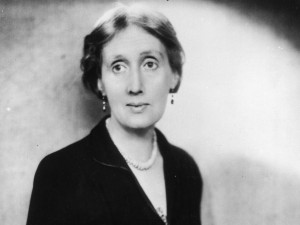
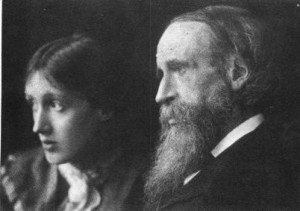





I was a bit surprised to see you characterizing Virginia Woolf as an Edwardian. I do not think that Woolf herself would accept that identification. In her essay “Mr. Bennett and Mrs. Brown” (1924) Woolf criticizes the Edwardians and extolls the Georgians, a group into which she places herself.
Thank you!